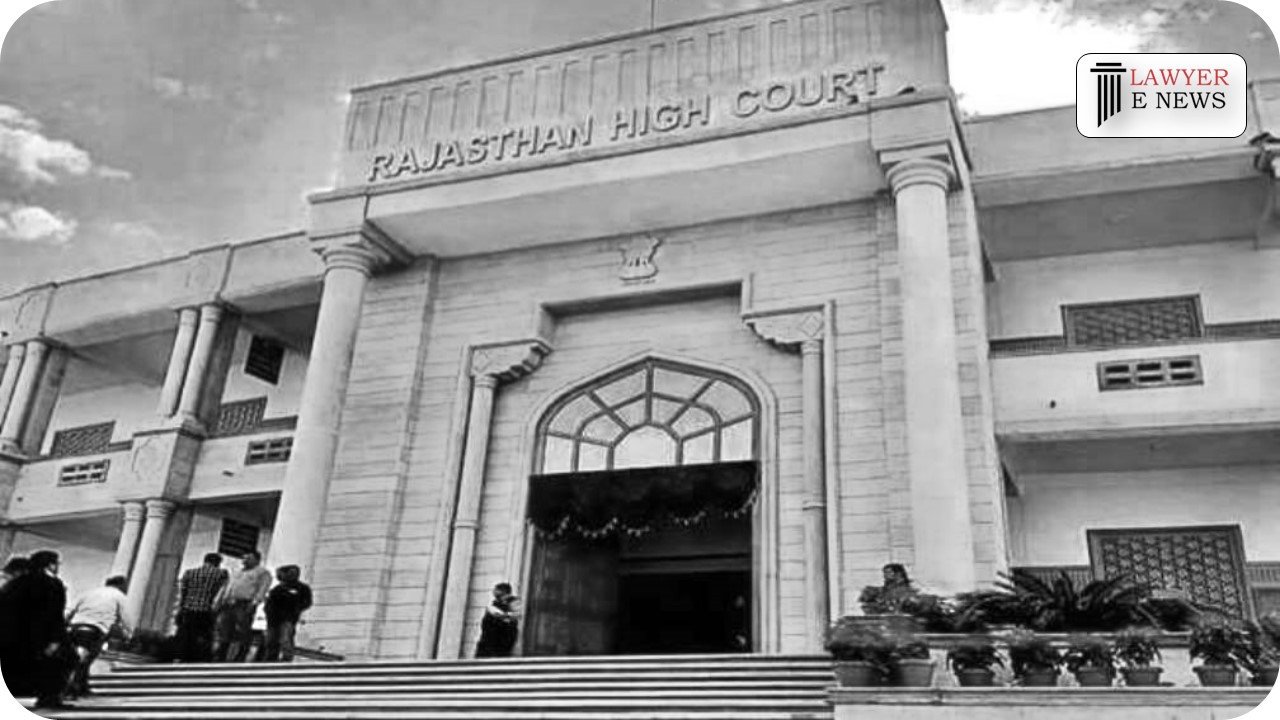-
by Admin
18 February 2026 2:25 PM



In a significant ruling, the Rajasthan High Court, in a judgment delivered on [Date], ordered a de novo trial in a case involving the Protection of Children from Sexual Offences (POCSO) Act, 2012. The court highlighted the hasty disposal of the trial, inadequate legal assistance to the accused, and the importance of safeguarding the rights of both the accused and the victim. The judgment serves as a reminder of the crucial role of trial judges in ensuring a fair trial and upholding constitutional liberties.
The case, titled [Case Name], was heard by a bench comprising [Names of Judges] at [Name of the Court]. The court, while analyzing the proceedings and record of the trial, expressed concern over the manner in which the trial judge had conducted the trial, raising doubts about the genuineness of the legal assistance provided to the accused. The court observed that the counsel appointed for the accused seemed to have completed arguments without having access to vital documents, such as witness statements, and failed to adequately present discrepancies in the evidence.
Addressing the issue of attorney-client privilege, the court emphasized the protection of communication exchanged between a lawyer and their client. It cited Section 126 of the Indian Evidence Act, which prohibits the disclosure of such communications without the client's consent, except in cases involving illegal purposes or the observation of crimes or fraud. The court underscored the necessity of allowing sufficient time for the accused and their counsel to converse and strategize in order to mount an effective defense.
Furthermore, the court discussed the importance of a fair trial, stating that justice should not be limited to one party but should encompass all parties and serve the larger societal interest. It cautioned trial judges against prioritizing promptness at the expense of the parties' rights. The court recognized the need for expeditious trials but emphasized that prudence and careful consideration of evidence should not be compromised.
In light of the shortcomings identified in the trial proceedings, the court set aside the conviction and sentence passed by the trial court. It ordered a de novo trial to be conducted by the same trial judge, starting from the stage of framing charges. The court provided detailed guidelines to ensure a fair trial, including compliance with the relevant provisions of the Criminal Procedure Code (CrPC), protection of the victim's rights, avoiding harassment of witnesses, and creating a child-friendly environment for the victim's testimony.
The court specifically directed the trial judge to issue fresh summons to witnesses, allow the victim to testify in a comfortable and supportive environment, and ensure that the accused is not directly exposed to the victim during the trial. It also highlighted the importance of cross-examination by an experienced defense counsel and the necessity of avoiding irrelevant and vexatious questions.
The judgment concluded by reiterating that none of the observations made in the judgment should influence the trial judge in any manner, and that the trial judge should conduct the trial afresh in accordance with the guidelines provided.
This landmark judgment serves as a significant reminder of the judiciary's commitment to upholding the principles of fairness and justice in criminal trials, particularly in cases involving grave offenses such as those under the POCSO Act. It emphasizes the importance of providing adequate legal assistance to the accused and protecting the rights of all parties involved, while striking a balance between promptness and ensuring a fair trial.
Kamlesh Versus State Of Rajasthan,
